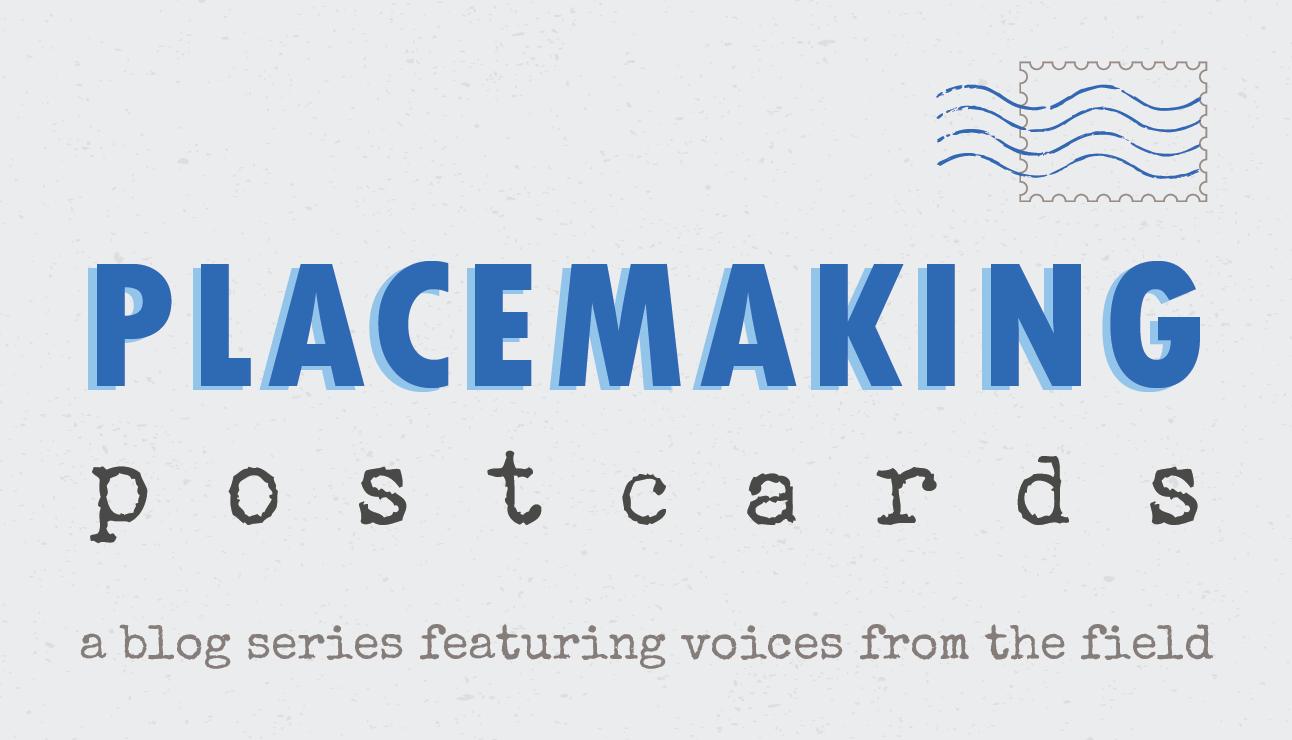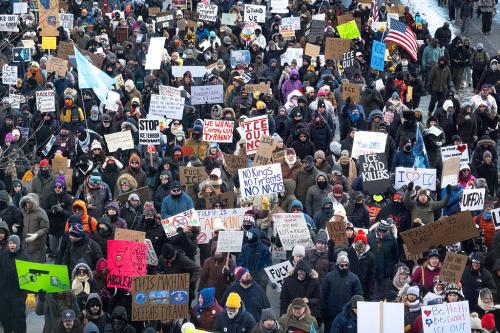Placemaking Postcards is a blog series from Transformative Placemaking at Brookings where policymakers and practitioners guest-author promising placemaking efforts from across the U.S. and abroad that foster connected, vibrant, and inclusive communities. In line with the principle tenets of placemaking, the goal of the series is to recognize the community as the expert, highlight voices from the field, and to create a community of learning and practice around transformative placemaking.
In America’s “Music City” of Nashville, Tenn., residents and visitors alike can find globally renowned artists performing in the most unlikely places: stores, restaurants, marinas, and even repurposed Kmarts. The city’s music scene has helped make it a major destination and cultural hub, directly contributing to 7% of the area’s economic output and over 80,500 jobs in 2020, with its economic impact growing by 43% from 2013 to 2020.
But Nashville’s music and cultural scene—first forged in small, independent venues—is now under threat due to rising property costs in the city’s increasingly “hot” real estate market, corporate competition, and neighborhood disputes about noise.
Similar dynamics are unfolding for independently owned music venues across the U.S. and globally, in cities from Manchester to Washington, D.C. A prime example of these tensions can be found in Nashville’s Bluebird Café—a 90-seat independently owned and operated venue founded in 1982 and located in a low-rise strip mall far from Nashville’s booming downtown. The venue has a history as an incubator of talent; it was where industry players “discovered” Garth Brooks, Taylor Swift, and others. Its iconic status was reinforced by its prominence in the network TV series “Nashville.” Recently, however, the venue is under pressure from the larger economic and competitive forces described above.
This piece focuses on the value that small and independent music venues bring to local communities, while also offering guidance to local leaders on how to preserve independent venues as critical “third places” that contribute to local prosperity, social cohesion, and civic life.
Why are independent music venues so important—and so vulnerable?
Independent musical and cultural venues are uniquely important to the economic life of cities across the globe. They foster social cohesion, key bonding opportunities, and residents’ sense of belonging in place. The 2024 Nashville Independent Venues Study, for instance, found that Nashville and Davidson County residents highly value independent music venues for their contributions to community-building, local employment outcomes, and quality of life.
However, our organizations’ recent analysis in cities across North America, Asia, Europe, and Australia found that higher land costs make venues less likely to invest in community-focused programming and more likely to face difficult choices such as moving, scaling down booking agreements, or being edged out altogether by corporate competitors. Our study of the Nashville region’s 14 Community Planning Areas found that independent music venue operators tend to locate on cheaper land, further away from denser areas with larger audiences, to invest in programming while keeping costs low (see Table 1).
What can be done to ensure independent music venues live up to their potential?
Fortunately, global research and our experience at VibeLab working with dozens of cities point to sustainable, actionable solutions that local leaders can employ to help independent music venues survive and contribute to local socioeconomic success, despite today’s rising costs, displacement pressures, and corporate competition. These recommendations include:
- Recognize music and nightlife as a key cultural asset, and plan accordingly. In many cities across the globe, civic policies and strategic plans often make a distinction between fine arts and popular culture, which informs everything from funding opportunities to zoning and planning to municipal and civic support. Germany is among the few countries that classify music clubs as “facilities of cultural purpose” for the purpose of governance and funding. Independent music and creative spaces in many cities can operate in a gray area, as they are neither nonprofit “fine” arts organizations eligible for city and philanthropic support, nor commercially driven entertainment. Local civic leaders can structure cultural governance and funding opportunities with a broader view of the institutions and activities that form the cultural fabric of their city.
- Help venues gain site control. Based on our studies of night governance networks in dozens of cities worldwide, few independently owned music venues own their real estate, making them vulnerable to shifts in the market. In Nashville, only 13% of dedicated music venues own their properties. Municipalities and other civic actors, including the business community and philanthropies, can support venues by incentivizing long leases, making city-owned property available for cultural use at affordable rents, developing cultural land trusts, and hosting “matchmaking” processes to connect property owners with aspiring venue operators.
- Establish solid nighttime governance. Nearly 100 cities around the world have some type of nightlife commission, office, or “night mayor” tasked with managing and supporting their city’s nightlife. This office serves as a liaison between venues and city agencies, mediates conflicts between venues and neighborhood stakeholders, and supports small business development and community engagement. Cities can create a municipal office focused on the infrastructure that serves residents and workers outside of traditional daytime hours to ensure life moves smoothly in the city around the clock.
- Streamline government services with “one point of entry” for small, independently owned venue operators. To open a venue, an aspiring entrepreneur must navigate a myriad of city processes. Streamlining these processes with centralized and personalized support can reduce the challenges and costs of operating venues and producing events. For example, night manager’s offices in cities such as Philadelphia and Seattle are focused on small business services for the entertainment sector, and provide support and case management for business development, licensing, codes, and regulation issues. To ease bureaucratic pain points for new venue operators, municipal governments can, through a single position or office, guide entrepreneurs through the local permitting and regulation processes necessary to bring their business to life.
- Support the next generation of music and nightlife entrepreneurs. Small, independent venues are often launched by people who are music lovers first and businesspeople second. In Nashville and many other cities, women-run and BIPOC-run venues are still in the minority. The next generation of young and diverse talent is central to sustaining the vitality of the industry. To ensure cities’ vibrant cultural scenes, municipal, civic, and industry actors can step up to support the next generation of entrepreneurs with grants and loans, small business services, and network-building between aspiring entrepreneurs and experienced partners.
Independent music venues need continued support in a post-Covid world
Cities worldwide are having trouble preserving creative spaces amid rising land costs and furious demand for space. The Nashville Independent Venues Study was part of an ongoing process in which venue owners, artists, local institutions, and government are more effectively communicating and coordinating on this issue.
Leaders at the state and local level have taken intentional action in the past year to meaningfully support Nashville’s independent venue ecosystem. The state of Tennessee created a Live Music Fund; real estate interests and venues cooperatively supported a successful public transit referendum; private parking lots began to offer subsidized spaces for musicians; the local night manager’s office was able to hire staff dedicated to codes; and local partners put on a citywide independent music festival. Whether this is enough to combat the threats of rising costs and corporatization is not clear, but the trajectory has been altered in Music City.
Independent music venues are vital to the cultural and economic fabric of cities and regions, but require concentrated attention from local leaders if they want to weather the pressures of the post-Covid world. Nashville demonstrates that when local leaders truly recognize the value of small venues and understand the bureaucratic challenges they face, their response has the opportunity to support communities and the spaces important to them.
The Brookings Institution is committed to quality, independence, and impact.
We are supported by a diverse array of funders. In line with our values and policies, each Brookings publication represents the sole views of its author(s).





Commentary
How Nashville, Tennessee is championing independent music venues as essential for cultural and economic prosperity
September 5, 2025